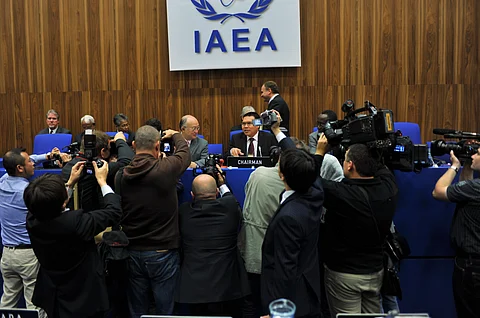

Western countries attending the International Atomic Energy Agency (IAEA) Board of Governors meeting submitted a resolution on Tuesday seeking to declare Iran in “non-compliance” with its obligations under the Nuclear Non-Proliferation Treaty (NPT).
The United States, United Kingdom, France, and Germany jointly submitted the motion, accusing Iran of failing to meet its responsibilities under the treaty. The resolution was introduced during the ongoing IAEA Board of Governors meeting in Vienna, which runs from June 9 to June 13.
Based on past voting patterns, the measure is expected to pass. In November of last year, the same group of countries—often referred to as “The Quad”—introduced a similar resolution censuring Iran for alleged non-cooperation with IAEA inspectors. That measure passed with 19 votes in favor, 12 abstentions, and opposition from China, Russia, and Burkina Faso.
If the current resolution is approved, it could be referred to the United Nations Security Council. However, given the veto power held by both China and Russia, it is unlikely that any punitive UN action against Iran would be successful.
One immediate consequence of the vote could be the reactivation of the “snapback mechanism” by the UK, France, and Germany—collectively known as the “E3.” This mechanism allows for the reinstatement of sanctions lifted under the 2015 Joint Comprehensive Plan of Action (JCPOA). Iran has repeatedly warned of serious repercussions if the E3 moves forward with restoring sanctions.
On Tuesday, U.S. President Donald Trump acknowledged that Iran was “becoming more aggressive” in ongoing negotiations. His comments follow multiple rejections by Tehran of U.S. proposals that would require it to significantly scale back—or relinquish sovereignty over—its nuclear program.
The sixth round of indirect negotiations between the United States and Iran is scheduled to take place in Oman on June 15.
Reports in Western and Israeli media claim that during a phone call with Israeli Prime Minister Benjamin Netanyahu on Monday, President Trump urged Netanyahu to abandon any immediate plans for a military strike on Iran, while still maintaining the possibility of reaching a diplomatic agreement with Tehran.